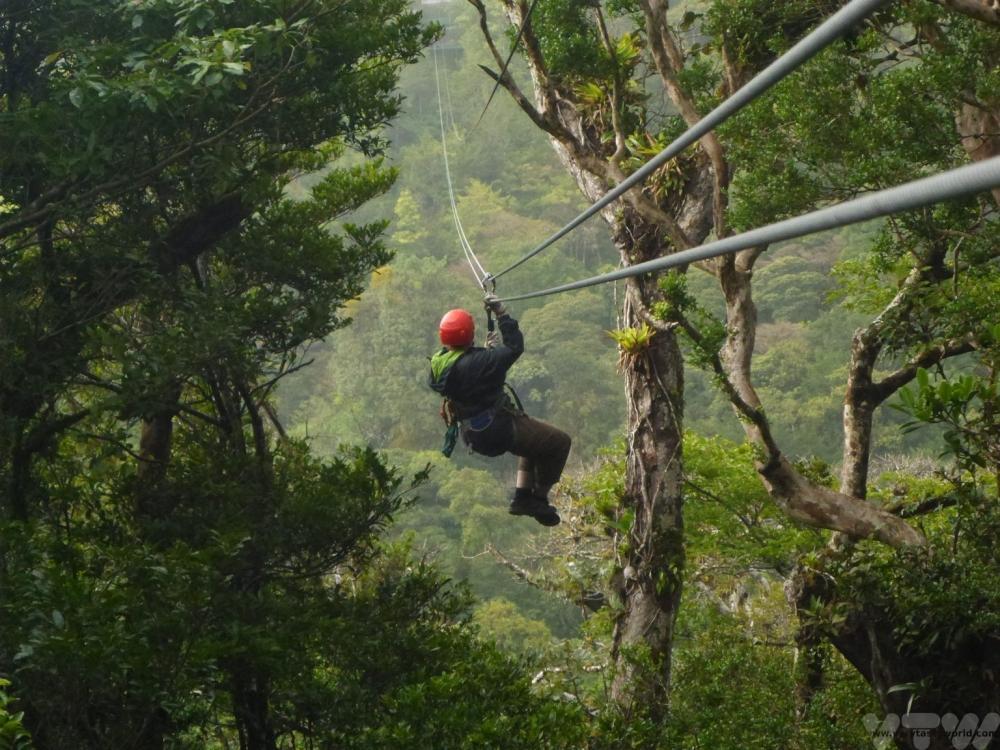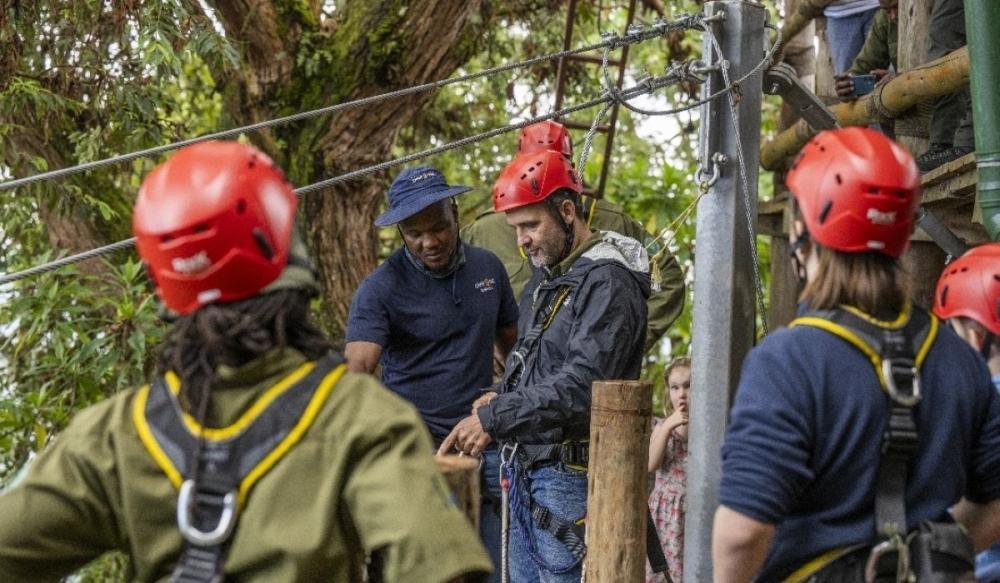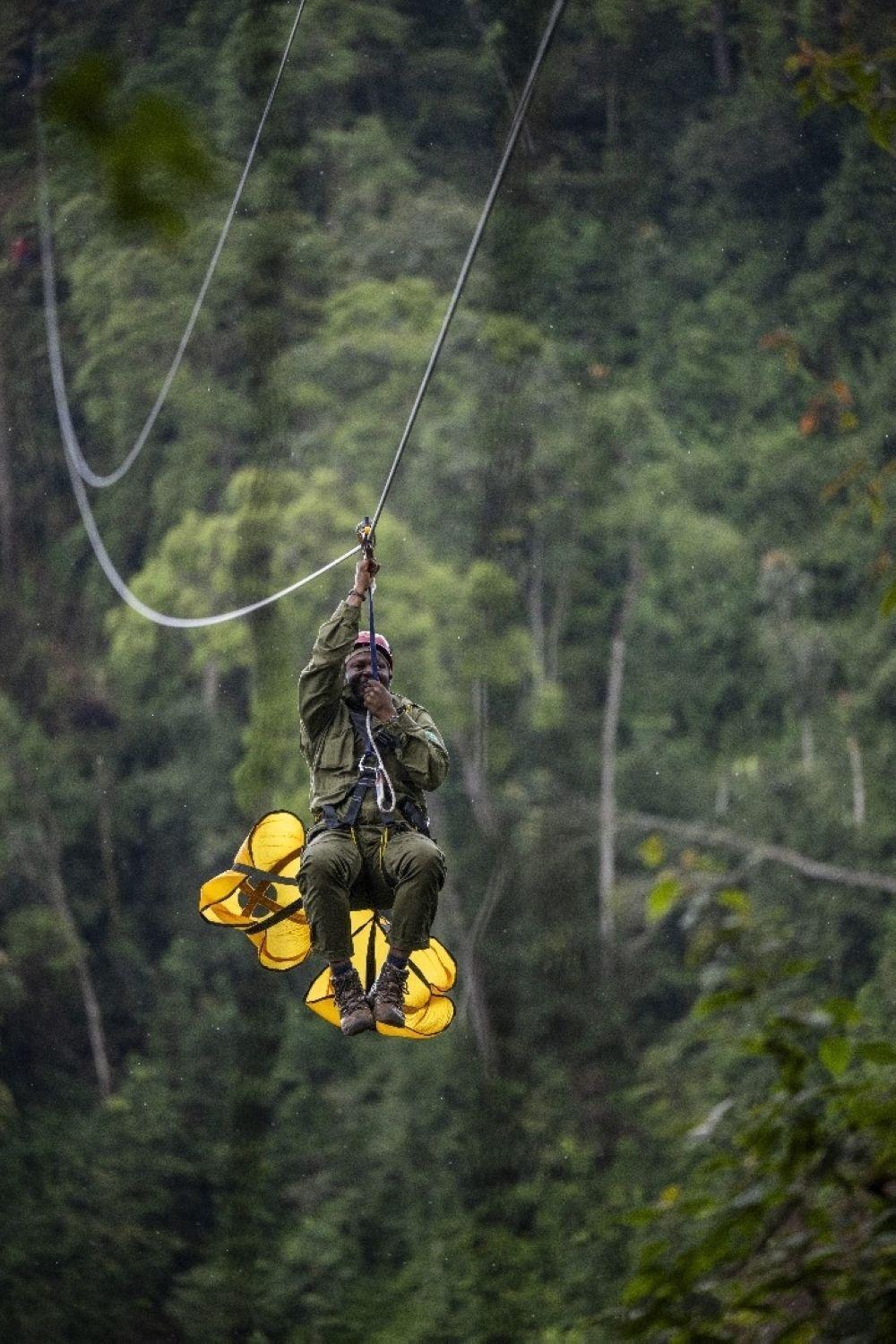Africa-Press – Rwanda. An international non-resident will pay $100 per activity, VAT inclusive, to use the 1,850-metre zipline in Nyungwe National Park, according to Protais Niyigaba, the park manager. Rwanda’s Nyungwe National Park is one of Africa’s oldest rainforests and a UNESCO World Heritage Site.
This fee is considered an additional charge, separate from the park’s entry fee, as the zipline has been designated a special activity. Tourists are expected to begin using the Nyungwe zipline by the end of June. A zipline is a cable or rope stretched between two points—often across a valley or forest—which a person rides down using a harness and pulley system. It is a fast and exciting activity commonly found in adventure parks or natural settings.
Suspended by strong steel cables strategically placed within the jungle, the zipline will offer a bird’s-eye view of Nyungwe rainforest. Niyigaba said that the infrastructure is 99% complete and is currently undergoing testing.
At the same time, park staff who will operate the zipline, as well as the guides, are receiving training.
“While an international non-resident will pay $100 per activity, an international resident and Africans from outside the EAC will pay $80 per activity, VAT inclusive,” said Niyigaba.
An international non-resident tourist is defined as a person who does not reside in the country they are visiting, as they are travelling from another country.
Rwandans and East African Community (EAC) residents will pay Rwf20,000 per activity.
“The zipline and canopy walkway package for an international non-resident will be charged at $125 per person,” he noted.
The same package will be charged at $100 per person for foreign residents, and Rwf23,000 for Rwandan and EAC residents.
The zipline tourism product is projected to attract 3,500 tourists in its first year and 9,000 tourists by its fifth year.
Rope course pricing
Nyungwe National Park has also introduced a rope course, located near Gisakura Park Reception, which is expected to open around the same time as the zipline. A rope course (also known as a ropes course) is a fun, outdoor activity involving walking, climbing, or balancing on ropes and obstacles set off the ground—much like a large adventure playground in the trees or on tall poles.
It comprises a series of challenges made from ropes, bridges, and platforms where participants climb, balance, and move from one point to another—usually for fun, teamwork, or confidence-building.
According to Niyigaba, an international non-resident will be charged $35, VAT inclusive. An international resident and Africans from outside the EAC will pay $20. Rwandans and EAC citizens will be charged Rwf10,000 per person.
The zipline rope course and canopy walkway package for an international non-resident will cost $150 per person per activity.
International residents will pay $110 per person, while Rwandans and EAC residents will be charged Rwf30,000 each per activity.
A third upcoming tourism product is Munazi Lodge—the first lodge owned by the park itself—which is expected to open within the next three months.
Munazi Lodge is a new eco-lodge currently under construction in Nyungwe National Park. Surrounded by rich biodiversity, it will offer unique experiences such as birdwatching, the canopy walkway, and chimpanzee trekking.
Other activities available in Nyungwe National Park include primate tracking, hiking, waterfall trails, and community-based tourism experiences.
Rwanda’s national parks experienced strong growth in 2024, with visitor numbers rising by nearly 11 per cent and revenues increasing by 8.5 per cent.
This growth was led by Nyungwe National Park, which saw a 20 per cent surge in visitors, according to RDB. A ridge running through the park forms a watershed between the Nile and Congo River drainage systems. A spring on the slopes of this ridge is believed to be the furthest source of the Nile.
For More News And Analysis About Rwanda Follow Africa-Press








